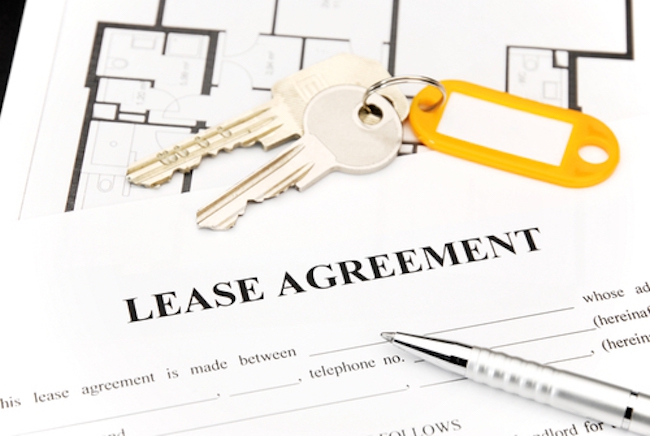
Lease renewal dos and don’ts for chiropractors
By Jeff Grandfield and Dale Willerton
Features Business Management
Properly negotiating your commercial lease renewal is an important consideration for chiropractic tenants. With effective negotiation, you can sign for a more appropriate lease term, receive valuable tenant inducements (paid by the landlord) and decrease your monthly rent paid to the landlord. Here are a few tips.
DO’s
Do create competition for your tenancy. Negotiate on more than one location simultaneously – especially with lease renewals. Even if you don’t want to move, create options so you can play one landlord against another. Share with each landlord that you are receiving proposals on other sites.
Do start the planning and site selection process well in advance. Starting a minimum of 12 months ahead allows for ample time for completing paperwork, searching for alternate sites (if necessary) and accounting for Murphy’s Law. If you can’t secure a good deal within the first few months, you can still exercise your option to renew or start the relocation process.
Do keep your success quiet. Landlords raise rents for the lease renewal period due to your success. If you have been profiting in a particular location, you likely will not want to move with a rental increase. Some agents and landlords will take advantage of chiropractors knowing how costly it can be to move and set up a new practice as a result of lost time, new investments and disruptions with patients.
Do talk to other tenants. For lease renewals, talk with other tenants in the building who have recently renewed leases. How did these renegotiations go? What did the landlord agree to in terms of rental rates and further tenant incentives?
Do negotiate for lease renewal incentives. For some reason, tenants neglect, or are simply fearful of negotiating for lease renewal incentives. Ask yourself what inducements (e.g. free rent and/or tenant allowances) would the landlord give to a new chiropractor just coming into the property. If these were there for the offering to a new chiropractor, then why wouldn’t an established chiropractic tenant – with a proven track record – get the same (or more) consideration?
Do walk away from a bad deal. In business, you must look at pessimistic projections. Years of frustration in a slow practice can be avoided if only more chiropractors had walked away from poor locations and bad lease deals. Be careful, take your time and get some help.
DON’Ts
Don’t have false optimism. When chiropractors tell us their practice isn’t doing very well, but they want to renew their lease anyway, this is false optimism. Unless you change location or something else about the way you practice, you should not realistically expect your next five years to be better than your first five years. Moving can be difficult, frightening, time-intensive and expensive; however, this may become absolutely necessary.
Don’t accept an inappropriate lease length. A five- or 10-year lease is often the norm for chiropractors. When renewing, do not automatically sign for that same time frame without considering your own personal and professional future. Are you planning to relocate, sell your practice or retire? A long-term renewal may be suitable for you, but remember three-year or even one-year terms are an option in many cases.
Don’t settle for your same rental payment. Achieving a rent reduction on your lease renewal is a very real possibility. If your landlord is leasing space to new tenants at less than what you are currently paying, a rent reduction for you should be a given. If your current rental rate is artificially high because of your last tenant allowance, a rent reduction on your renewal term could also be in order.
Don’t accept the first offer. Once your landlord has made the first offer or proposal regarding your lease renewal, the real negotiations begin. Don’t be too eager to accept that first offer, even if it seems reasonable. With patience and good communication, you can almost better any first offer, which may be nothing more than a smokescreen anyway.
Don’t allow the landlord to retain your deposit. If you have paid the landlord a hefty deposit on the property, don’t forget to ask for this back upon your lease renewal date. You have, after all, proven yourself as a responsible tenant over your initial term. Why should your landlord keep this money?
Don’t disregard your operating costs. Having your lease and/or operating costs audited is a simple and effective way to keep your landlord and property manager honest. Frequently, chiropractic tenants pay much more than they need to because of padded or miscalculated operating costs.
Don’t jump to exercise options. Even though you have a renewal option, you may not want to exercise it – especially if the renewal term rental rate automatically increases or can’t decrease. If you are certain that your landlord wants you to stay and market rates (the “going rate” in your neighbourhood) have softened, you may want to negotiate from scratch. With 98 per cent of our clients, we do not exercise their lease options.
—–
Dale Willerton and Jeff Grandfield are lease coach consultants who work exclusively for tenants. Dale and Jeff are professional speakers and co-authors of Negotiating Commercial Leases & Renewals FOR DUMMIES (Wiley, 2013). You can contact them at dalewillerton@theleasecoach.com or visit www.TheLeaseCoach.com.
Print this page